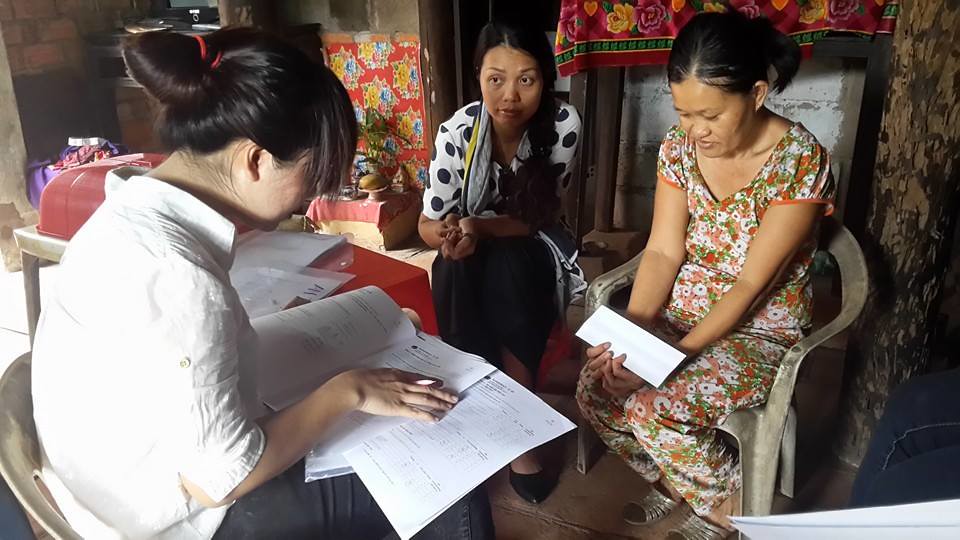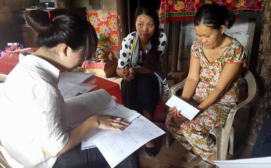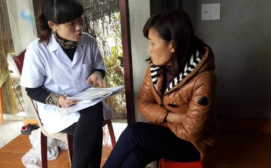
A health worker assesses a patient using the WHO Disability Assessment Scale with the supervision of project staff during a home visit in Thanh Hoa,Vietnam (© Pham Thi Oanh)
Project Lead(s): Elliot Goldner
Making the most of scarce resources through “frugal innovations”: Training community health workers to treat anxiety and depression and providing telephone-based coaching and support to families of children with behavioral difficulties
Mental health disorders, of which alcohol abuse, depression and anxiety are the most prevalent, constitute one-sixth (16%) of the disease burden in Vietnam, exceeding the global average. The availability of trained mental health professionals, however, falls far below that of other countries.
In a 2011 study, Vietnam ranked last among 144 low- and middle-income countries on the availability of mental health care, with 1.7 psychiatrists and 11.5 psychosocial care providers per 100,000 population.
A project led by the Centre for Applied Research in Mental Health and Addictions (CARMHA) at Simon Fraser University’s Faculty of Health Sciences project helps to fill this service gap in two low-cost ways: Training community health workers to treat adults suffering from anxiety and depression, and providing telephone-based coaching and support to families of children with behavioral difficulties.
A two-year pilot study in two provinces of Vietnam successfully demonstrated the approach, screening almost 1,300 people, of which 127 now receive treatment for depression — more than three times the number anticipated — and pre/post treatment evaluations show statistically-significant decreases in symptoms.
Building on that success, the adult depression program will be scaled up and rolled out in 32 communities across nine provinces in Vietnam. It is expected that roughly 4,250 people with depression will access services, of which 1,280 will experience improvements in the next year.
Whereas the pilot project focused solely on adult depression, the scaled-up project will include a child and family-focused component. Materials for a distance coaching model called “Strongest Families” have been adapted and translated for Vietnamese use, and a 25 family pilot study is underway.
The team will evaluate the Strongest Families model in nine provinces, with five coaches providing support to an estimated 740 children and parents over three years.


